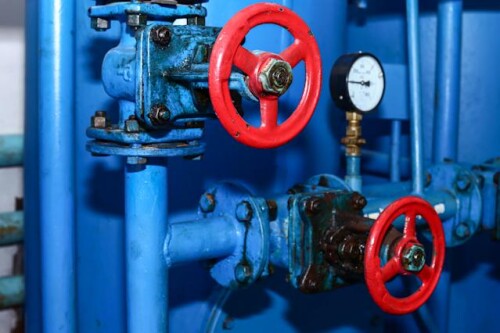
Global ban on gas boilers proposed from 2025.
The International Energy Agency (IEA) said there should be a global ban on new fossil fuel boilers starting from 2025, as part of its vision to achieve net-zero emissions by 2050.
This is similar if more ambitious compared to the UK government's decision to phase out gas boiler installations by mid-2030s.
The IEA believes such a ban would drive up sales of electric heat pumps and hopes that most old buildings and all new ones will eventually comply with zero-carbon-ready building energy codes.
As part of its pathway to net-zero it believes there will need to be a huge decline in the use of fossil fuels.
It wants these to fall from almost four-fifths of total energy supply today to slightly over one-fifth by 2050.
The IEA's plans also include halting sales of new internal combustion engine passenger cars by 2035, and phasing out all unabated coal and oil power plants by 2040.
It also said government policies should limit or provide disincentives for the use of certain fuels and technologies, which along with gas boilers include unabated coal-fired power stations and conventional internal combustion engine vehicles.
Achieving net-zero emissions by 2050 will require nothing short of the complete transformation of the global energy system,” it said in its new report ‘Net Zero by 2025’.
"The number of countries announcing pledges to achieve net-zero emissions over the coming decades continues to grow. But the pledges by governments to date – even if fully achieved – fall well short of what is required to bring global energy-related carbon dioxide emissions to net zero by 2050 and give the world an even chance of limiting the global temperature rise to 1.5 °C," the report added.
The BBC has noted that "the IEA's route to net-zero will require massive investments and international co-operation on an unprecedented scale" and "have direct impacts on consumers all over the world."
In the UK, according to Installer, 2019 saw a record number of gas boilers being sold — 1.67 million units, an increase of 1.8% on 2018 figures.
Consumer group Which? said that as per the UK government's plans, those who currently have a gas or oil boiler won’t need to replace it. But it does mean that, from the mid-2030s, they won’t be able to get a traditional gas or oil boiler installed.
Instead a low-carbon heating system, or an appliance that can be converted to use a clean fuel, will need to be installed. Systems such as a heat pumps or hydrogen-ready boilers are likely candidates.
src: Yahoo news
The uploaded content will be moved to this newly created album. You must create an account or sign in if you want to edit this album later on.